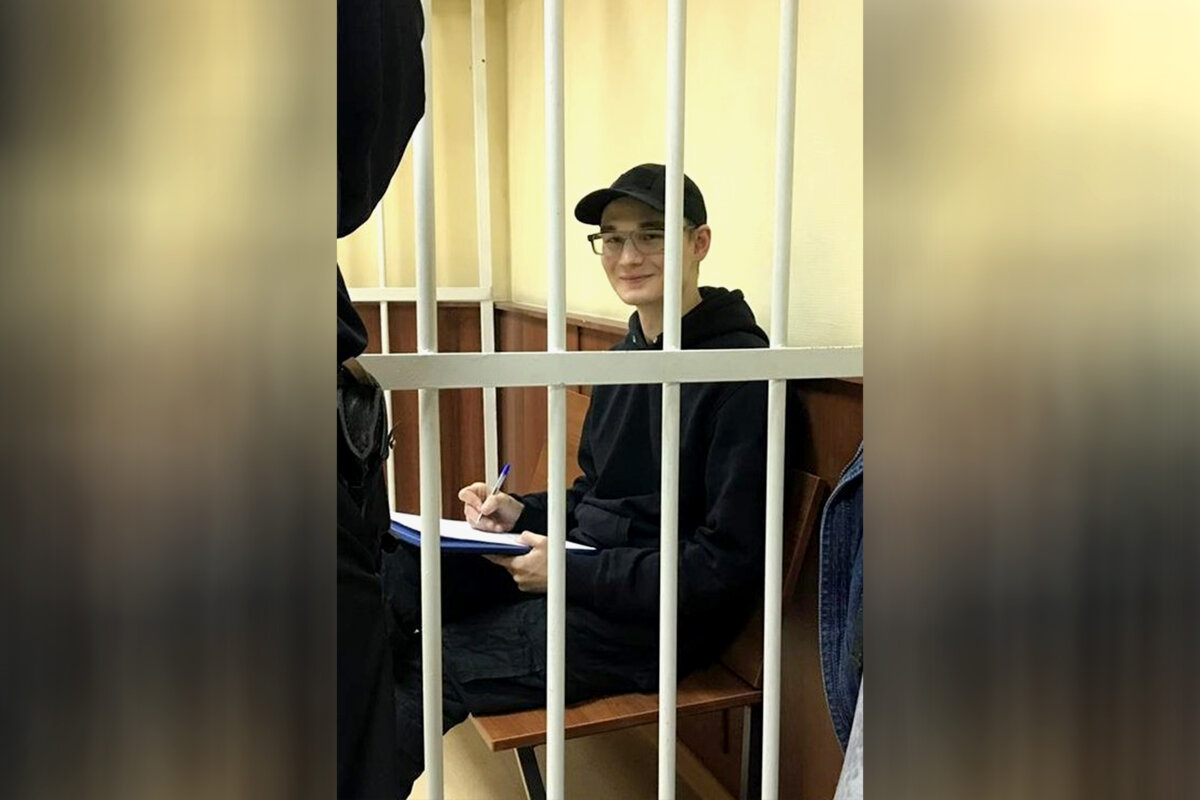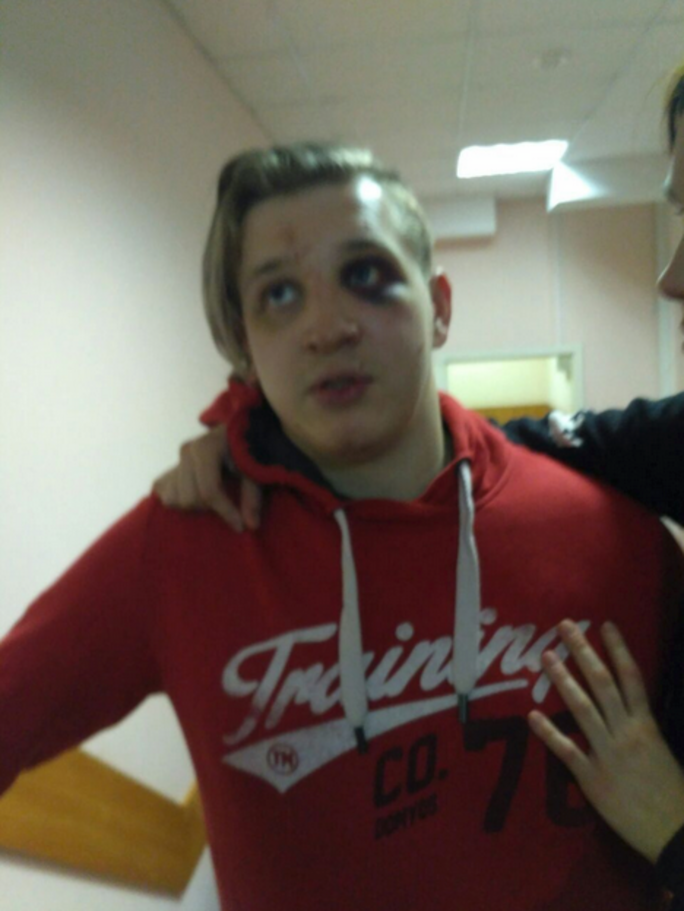The case of brilliant young Russian mathematician Azat Miftakhov, a postgraduate student of the Lomonossov Moscow State university, is emblematic of the perverse repressive practices of the regime of Vladimir Putin.
A self-declared opponent of the regime and born in Tatarstan in 1993, he was first arrested in February 2019 and finally convicted in January 2021 of vandalism, for which he was sent to a penal colony. While he is in principle eligible to be freed in September this year, the Russian federal security services, the FSB, are preparing a further case against him which could see him sentenced to many more years behind bars.
When Miftakhov was first arrested, he was accused of bomb-making. He told his lawyer he suffered torture at the hands of the police, but he refused to confess to the alleged crime. On the order of a court, he was soon released for lack of evidence. But, almost immediately, Miftakhov was rearrested, this time accused of breaking, in January 2018, a window at the Moscow offices of the pro-Putin United Russia political party, which dominates the Russian parliament, the Duma. A flare was allegedly then thrown through the smashed window.
At his staged trial in 2020, when he appeared alongside two other co-defendants, the case against him hinged on the account of a secret “witness” who claimed he had seen Miftakhov at the scene of the attack on the United Russia offices. The witness had said in a statement that he had been able to identify Miftakhov, one year later, because of his “expressive eyebrows”. At the trial, prosecutors said the witness had since died after what was called a cardiac incident.

Enlargement : Illustration 1

The two co-defendants, who the prosecution presented as members of an anarchist group, admitted attacking the United Russia offices, but told the court that Miftakhov was not involved. Miftakhov himself has consistently denied the charges, despite his reported beating and torture, which human rights activists have said included the use of an electric screwdriver. While the co-defendants were given suspended sentences, Miftakhov, who had the audacity to deny the official version of his guilt, was in January 2021 sentenced to six years in a penal colony.
Beginning well before the trial, the international scientific community became mobilised to demand Miftakhov’s release (see examples here and here), and conerns voiced over his alleged torture were joined by renowned linguist linguist Noam Chomsky. But the FSB was determined to make of Miftakhov a symbol that had to be destroyed.
Prominent French mathematician Michel Broué, who has long been engaged in campaigns in defence of persecuted fellow mathematicians in Russia and previously the Soviet Union (including the late Ukrainian mathematician and dissident Leonid Plyushch), says that the fear that high-profile campaigns in support of Miftakhov could jeopardize his safety are unfounded. “The more one reminds public opinion about such cases, the less they risk being harshly punished,” he told Mediapart. “I’ve continually had confirmation of that.”
However, Mediapart understands that the FSB are preparing a fresh case against Miftakhov, which could see him sentenced to many more years in a penal colony. Just earlier this month, another mathematics student at the Moscow State university was given a prison sentence of eight and a half years for having criticized on social media the Putin regime’s war against Ukraine.
It appears that the new case being prepared against Miftakhov seeks to link him with terrorism, and centres on the activities of two Russian anarchist movements. Mediapart has spoken with two men, separately members of the groups, and who suffered at the hands of the FSB. They later fled Russia and were granted political asylum in France, where they now live. They agreed to recount their experiences to Mediapart.
Svyatoslav Rechkalov, 33, who worked as a cook in Russia, became an anarchist at the age of 17. A member of the People’s Self-Defence organisation, which emerged after the splitting of the largest Russian anarchist group, he was involved in creating alternative media, street demonstrations, and mounting blockades of businesses identified as mistreating their employees (such as not paying wages and carrying out illegal sackings). “The state is never a protector,” he said. “We tried to introduce direct democracy, solidarity, horizontality, amid so much exploitation and verticality.”
“When the year 2018 was approaching, marked by the presidential election and the football World Cup in Russia, the Kremlin became obsessed with security,” Rechkalov said. “The FSB were given free rein, and the term ‘terrorist’, which had at first targeted the Chechens, englobed all the opponents [of the Kremlin], and the anarchists in particular. All the more because we were seeking to bring together all those that this mafia state atomizes.”
Retchkalov was arrested in March 2018 and taken “for a tour around town” in a van. He said he was taken away, his eyes covered with adhesive tape and a bag placed over his head, and he was beaten up. He said he was also administered electric shocks, and threatened with injuries to his genitals if he didn’t talk. Which he did, confessing to being the head of the People’s Self-Defence anarchist group, which was false. He was freed and placed under house arrest, with the warning that the next time he would be given “a tour of the forest”.
However, Rechkalov received help to escape Russia and was eventually granted political asylum in France where, he said, still today he receives threats from the FSB. He said he wants to make clear how baseless are the accusations of terrorism levelled against the anarchist group, with which it appears the Kremlin wants to associate Azat Miftakhov in order to put him down for years to come.
The 'Network'
Igor Shishkin also escaped Russia with outside help. He was arrested in 2018 along with others in what became the so-called Network case, involving a group of mostly leftwing activists who were accused by the FSB of plotting terrorist bomb attacks around Russia. In reality, they belonged to a group of somewhat whacky idealists who trained in woodlands with “airsoft” pellet guns, in preparation for the day when, they hoped, Russia would experience a civil revolt like that of the 2013 Maidan Uprising in Ukraine. The group were spread across the cities of Moscow, St. Petersburg and Penza, and also in Belarus.
Shishkin said that after his arrest he was tied up, his arms bound behind him and his head pulled back, and initially tortured with an electroshock weapon. Other tools were then used in what he said was a “hurdy-gurdy of pain” in an attempt to extract confessions and false statements from him.

Enlargement : Illustration 2

Along with the beatings and torture, the FSB agents also threatened to rape his wife. “They are selected so that only the most sadistic remain, incapable of the least compassion,” he said of the agents. “If they make out that they’re sorry for you, you know it’s a trap or that they’re mocking you.”
He recounted that he was beaten so badly that he had to be taken to several hospitals in Saint Petersburg to obtain a medical certificate attesting his injuries were not fatal, and if a doctor urged that he be kept for treatment the agents would rush him away.
Shishkin finally provided the confessions they were looking for, and provided testimony against others, including accusing Azat Miftakhov of what were made-up crimes. He said he feels shame for having done so, and accepted to talk to Mediapart about it in order to avoid the even greater ordeal now facing the young mathematician. “Why do they hound him so?” he asked.
The horrifying and irrational persecution of Azat Miftakhov appears as if an allegory of the Russian authorities’ headlong rush into the abyss, totally lost for intelligence. Like the so-called Nazi Ukraine, the so-called anarchist mathematician must pay with life for an inexistant crime, one which a demented regime seeks to render tangible.
-------------------------
- The original French version of this report can be found here.


